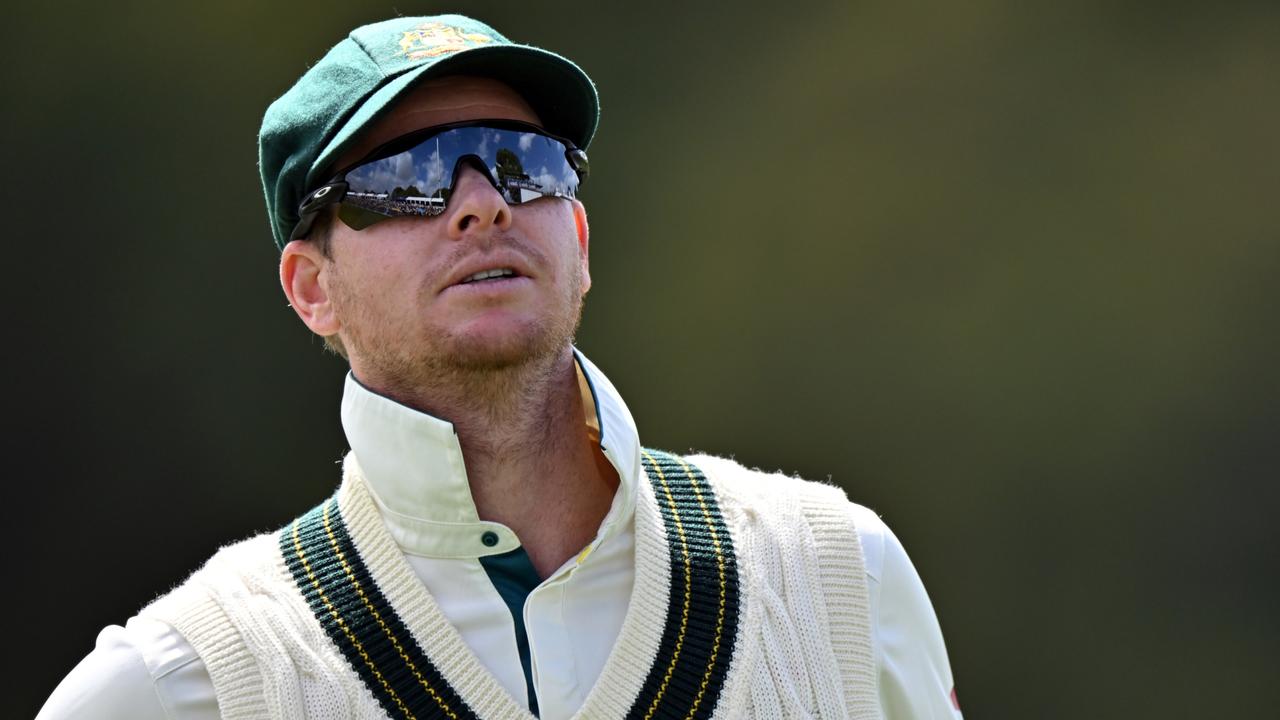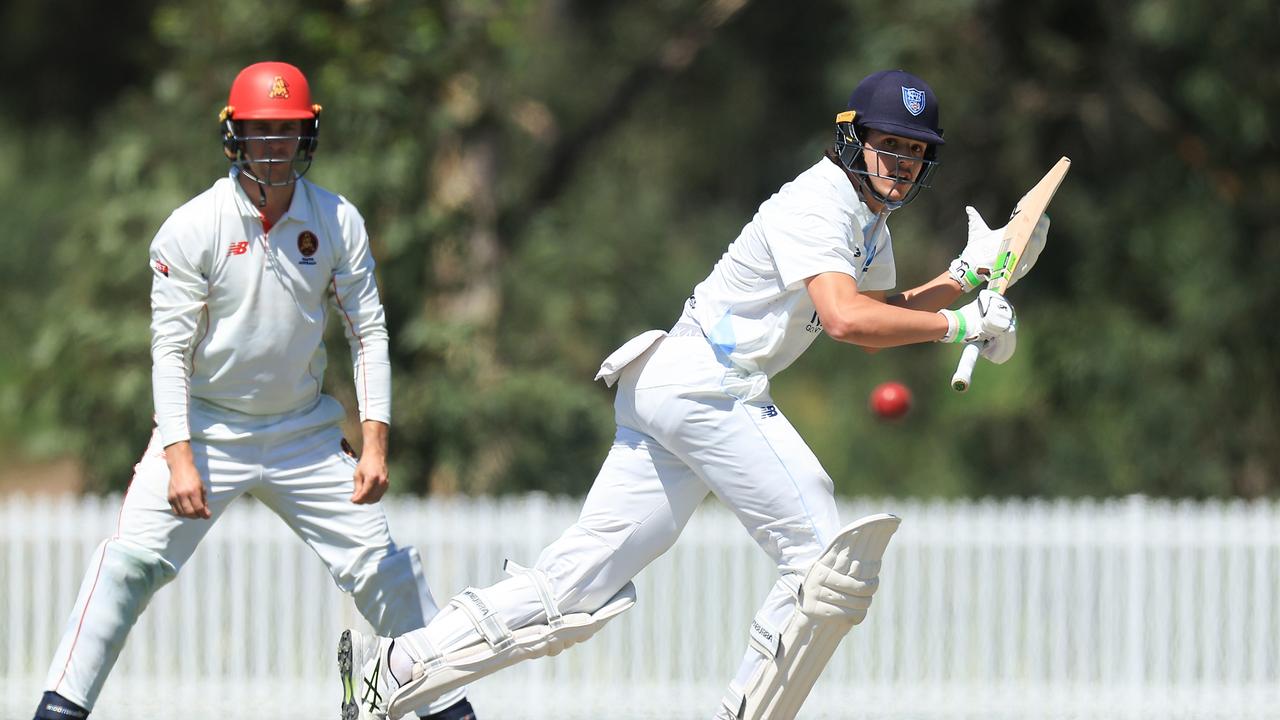Once isolated and vilified, Ashes opener Usman Khawaja is now changing Australian cricket
Usman Khawaja’s rare resilience has helped his Australian team harness the power of inclusivity, and his first Test confrontation with an England foe laid bare his huge popularity, writes STEVE JAMES.
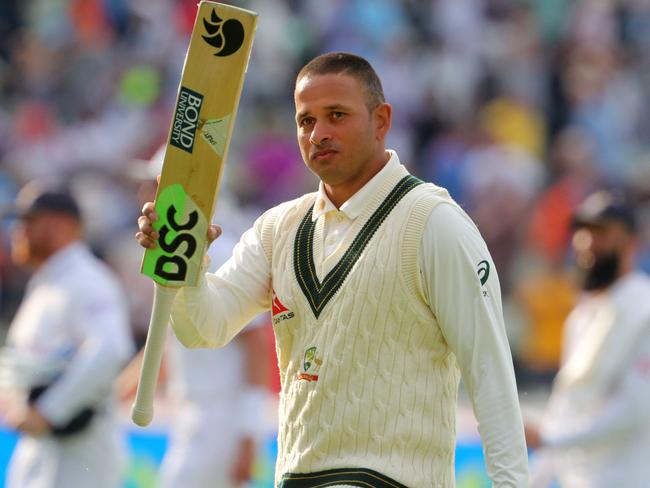
Cricket
Don't miss out on the headlines from Cricket. Followed categories will be added to My News.
By now, Ollie Robinson will know all too well that at Edgbaston he chose the wrong man to target in Usman Khawaja.
The Australia left-handed opener is one of the most popular characters in the game, and Robinson’s first-innings invective-filled send-off – and then some frustrated observations about Khawaja’s batting in the second innings – predictably met staunch defence from Australia legends such as Ricky Ponting and Matthew Hayden.
That’s what the Aussies do. “Like a junkyard dog, we protect our own,” as Justin Langer said in his column in The Daily Telegraph.
“He [Robinson] has just sledged probably the nicest man that’s ever walked on the planet,” Ponting said, and you will find very few in the cricketing world who disagree with that character assessment.
Khawaja will have appreciated the legends’ support, but the truth is that he does not particularly like the traditional sledging stereotype of Australian cricket. As he said on Amazon Prime Video’s superb behind-the-scenes documentary The Test, about the team’s attitude before the ball-tampering scandal in 2018: “I really wasn’t enjoying where the Australian team was heading before the sandpaper stuff and I didn’t think we were playing the game in the right spirit. The rest of the world hated us. They thought we were dicks.”
That said, Khawaja knows how to stick up for himself. “I have no issue in dealing with conflict, because I’ve done it all my life,” he told The Guardian before this series. “I’ve grown up as a coloured cricketer in a very white Anglo-Saxon country and a very white Anglo-Saxon cricket team.
“I stick out like a sore thumb. I don’t drink, I fast, English was my second language, my name is Usman Khawaja. When you think of an Australian cricketer, you do not picture me.”
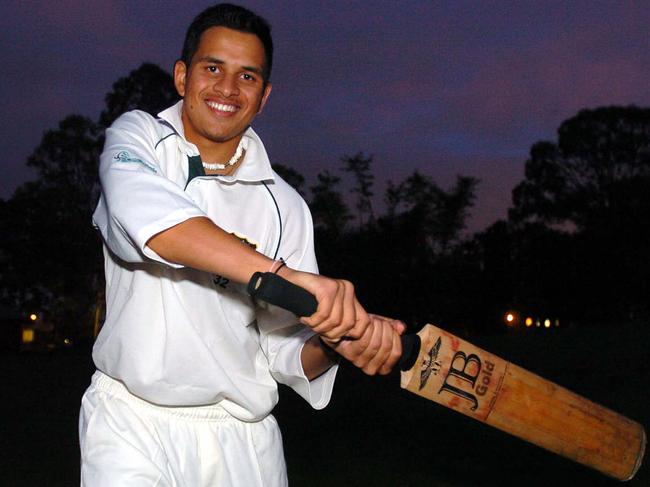
Khawaja’s fascinating backstory in becoming, when selected in 2011 for the fifth Test against England in Sydney, the first Muslim to play for Australia is one based on remarkable resilience against the odds. He moved from Pakistan to Australia with his family when barely five years old, for the first five years living in a cramped two-bedroom apartment in Sydney with his parents, Tariq and Fozia, and his two brothers, Nauman and Arsalan.
Cricket was always in the family – Khawaja has described his father as “the greatest cricket tragic of all time” – but, though they lived close to the Sydney Cricket Ground, they could not afford tickets to watch the international matches, and young Usman spent much time waiting outside the gates, hoping he would be let in free later in the day.
In 2017, Khawaja wrote a compelling article on the Athletes Voice website, detailing the racism he had suffered during those early years. “At school I was called things by other kids I had never heard before,” he said. “‘F***ing curry muncher’ was one of the more popular ones that particularly hurt. Being racially vilified actually made me stronger in many respects.
“Getting sledged by opposition players and their parents was the norm. Some of them said it just quietly enough for only me to hear. It still hurt, but I would never show it. Most of the time it was when I scored runs.
“For this reason, so many of my friends, most of whom were born outside Australia, didn’t support Australia in sporting contests. I didn’t either. In hindsight, the fact we didn’t support Australia is disappointing. Everything that was going on in our childhood and around us built up this resentment of the Australian cricket team. None of them looked like us. I was brought up to believe if I didn’t drink alcohol growing up, I was un-Australian.”
Tellingly in that final regard, when Australia won the World Test Championship recently against India at the Kia Oval, Khawaja posted a photograph on Instagram, with the words, “Celebrating with a Diet Coke. Some old heads call it Un-Australian. I call it the new Australian. A game for all.”
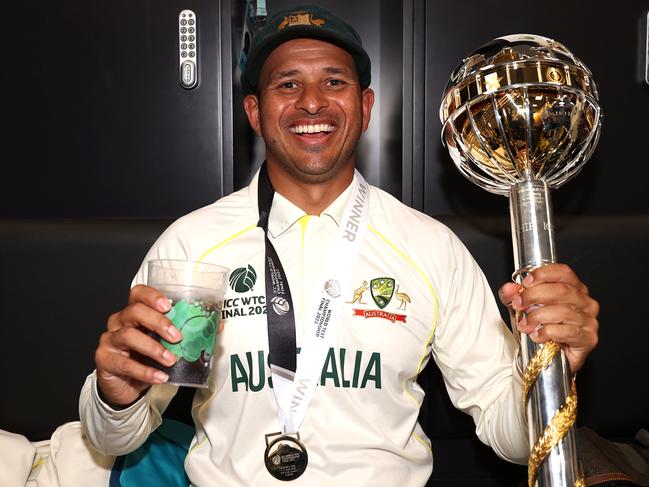
In terms of racism in cricket the greatest sadness for Khawaja is clearly not concerning himself but the others who have missed out because of it. “As I grew up – and Australia grew up – things changed radically,” he continued on the Athletes Voice website. “I started to understand that the minority of Australians who did treat me this way were just that. A minority.
“By high school I was a diehard Australian team supporter. But, from a pathways perspective, the damage had been done. Not to me, but to some of the other immigrant kids who could have gone on to play for Australia. They chose not to pursue a dream because of the negative experiences they had endured. I count myself lucky to have a very strong-willed family. And a natural instinct that always wants to compete no matter what.”
Khawaja has definitely inherited that strong will, as well as an instinct to be straight-talking and open. There is much else to respect too. Khawaja’s man-of-the-match performance at Edgbaston – making 141 and 65 – was a delight for traditionalists. He batted on all five days of the Test, one of only 13 players to have ever done so.
It took Khawaja to seventh in the ICC’s Test rankings. He also has the highest average for an opener in the history of Test cricket (of those with a minimum of 20 innings). In his 37 innings as an opener, he averages 66.87.
That is an astonishing record for a player who has hopped in and out of Australia’s side over the years, and for one whose Test career looked to be over when he was dropped after the famous Headingley Test of 2019, the day Ben Stokes broke Australian hearts.
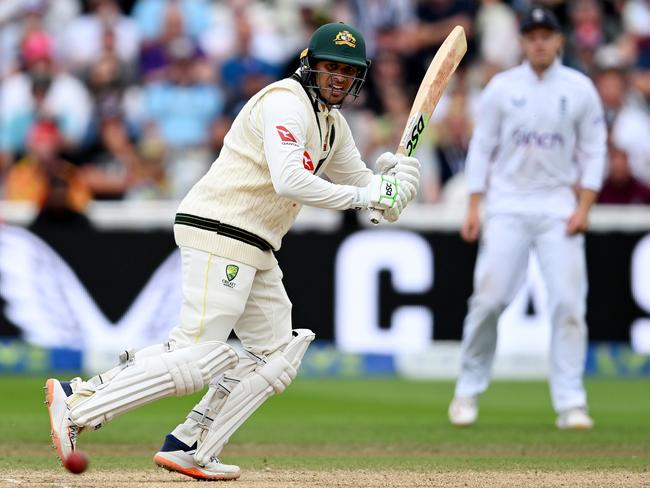
Very few look back on the pandemic with any affection, but Khawaja can be classed as one such person. If Travis Head had not contracted Covid, Khawaja would not have been unexpectedly recalled for the fourth Ashes Test, at Sydney, in January last year. Seemingly free of previous pressures, he duly scored two hundreds and has not looked back since.
The century at Edgbaston was his first in a Test in England, after 12 previous innings here had yielded only one fifty, yet another example of Khawaja proving people wrong.
Khawaja had been a schoolboy prodigy. Mike Whitney, the former Australia fast bowler, who was a long-time patron to the junior club Sydney Coastal, where Khawaja and David Warner, now Australia’s Test openers, performed the same role as teenagers, says: “I kept hearing about them, like ‘no one else got a bat’. They were 12 or 13.”
Khawaja, the quiet kid from Pakistan who would study aviation at the University of New South Wales and become a qualified pilot, and Warner, the rather noisier and hyperactive kid who was not particularly keen on studying, made for an unlikely partnership. But from about the age of ten they were throwing a ball against the wall together at the Waverley Oval in Sydney.
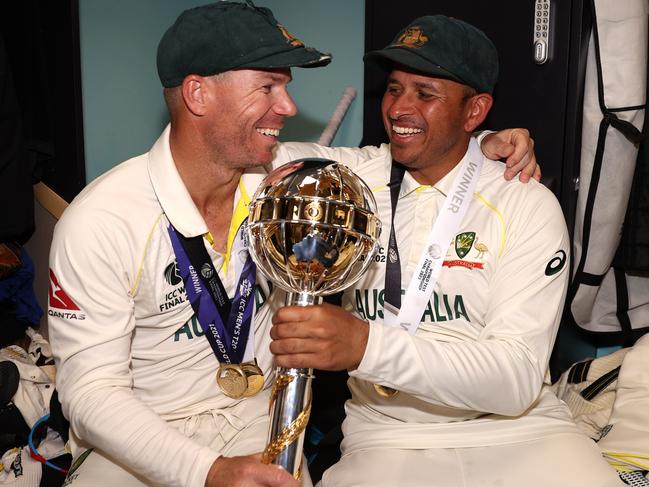
Khawaja was an opener by inclination as a youngster, a very different batsman then, holding his bat aloft and struggling for power. He worked with Matthew Phelps, a former New South Wales batsman and now a coach, to develop the method we see now, with his bat tapped on the ground initially to provide rhythm and flow to his game.
He played the off spinner Moeen Ali outstandingly well at Edgbaston, often defending off the back foot, while never afraid to hit down the ground.
He played outstandingly well all round. All the talk pre-series was about the threats for England of Steve Smith, Marnus Labuschagne and Head with the bat, but Khawaja has swiftly changed that narrative, just as he has changed the whole diversity narrative in Australian cricket, in his stated hope that his country can now have “an international team truly representative of its richly diverse population”.
More Coverage
Originally published as Once isolated and vilified, Ashes opener Usman Khawaja is now changing Australian cricket



